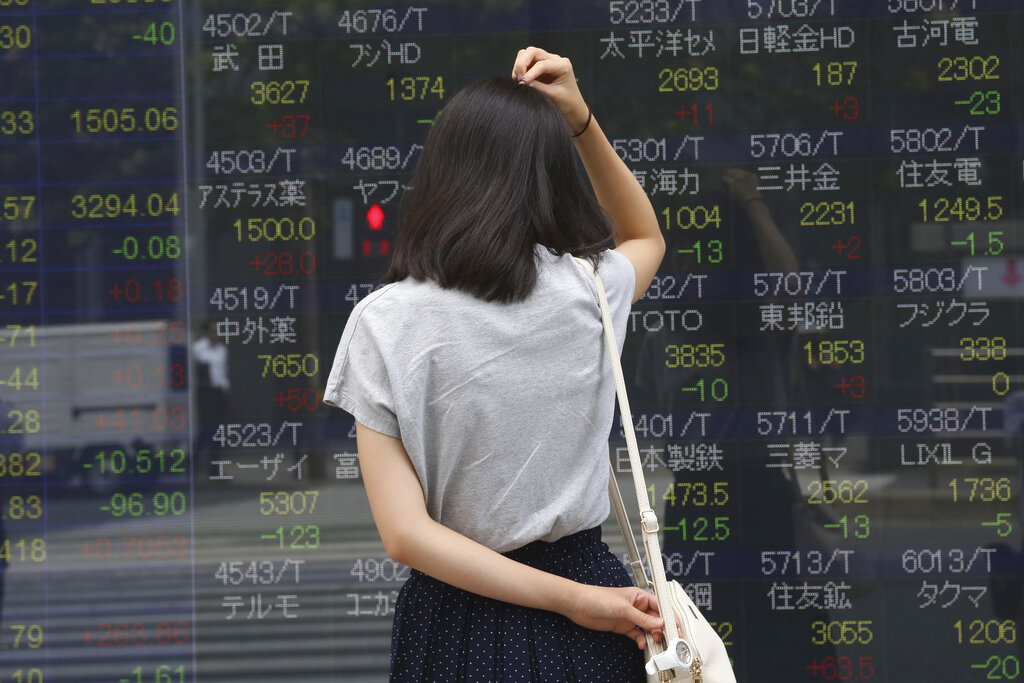
BEIJING (AP) — Asian stocks were mixed Monday after Washington and Beijing escalated their trade war with new tariff hikes.
Shanghai advanced while Tokyo and Hong Kong declined. South Korea’s main index was unchanged.
Markets reacted less strongly to the weekend tariff hikes on billions of dollars of goods than to previous increases. Investors are hoping for progress in talks this month, but analysts warn the fight over trade and technology is unlikely to be quickly resolved.
“The short-lived truce will probably provide limited relief,” said Zhu Huani of Mizuho Bank in a report. “Businesses have become increasingly uncertain about future prospects, evidenced by the pullback in business investment amidst growing concerns on growth.”
The Shanghai Composite Index gained 0.7% to 2,907.51 and Hong Kong’s Hang Seng lost 0.7% to 25,546.70. Tokyo’s Nikkei 225 shed 0.2% to 20.653.99.
Seoul’s Kospi was flat at 1,967.76 and Sydney’s S&P-ASX 200 retreated 0.4% to 6,579.20. New Zealand and Taiwan gained while Southeast Asia markets retreated.
On Sunday, the United States started charging 15% tax on about $112 billion of Chinese imports. China responded by charging taxes of 10% and 5% on a list of American goods.
The two governments say they are going ahead with talks this month in Washington but neither side has given any sign it might offer concessions.
The United States is pressing China to narrow its trade surplus and roll back plans for government-led creation of global competitors in robotics and other industries. Its trading partners say those violate its free-trade obligations and are based on stealing or pressuring companies to hand over technology.
The two governments have imposed higher taxes on about two-thirds of the goods they import from each other.
“We’ll see what happens,” President Donald Trump told reporters. “But we can’t allow China to rip us off anymore as a country.”
On Wall Street, stocks ended little changed Friday after a listless day of trading ahead of a holiday weekend.
The market closed out August with its second monthly decline this year, after May.
Financial, industrial and health care stocks were among the big winners. Those sectors outweighed losses in consumer goods makers and communication services stocks. Shares in companies that rely on consumer spending also fell.
The S&P 500 index rose 0.1% to 2,926.46. The Dow Jones Industrial Average gained 0.2% to 26,403.28. The Nasdaq slid 0.1% to7,962.88.
ENERGY: Benchmark U.S. crude lost 11 cents to $54.99 per barrel in electronic trading on the New York Mercantile Exchange. The contract fell $1.61 on Friday to close at $55.10. Brent crude, used to price international oils, retreated 37 cents to $58.88 per barrel in London. It sank $1.24 the previous session to $59.25.
CURRENCY: The dollar declined to 106.17 yen from Friday’s 106.24 yen. The euro was unchanged at $1.0991.
















